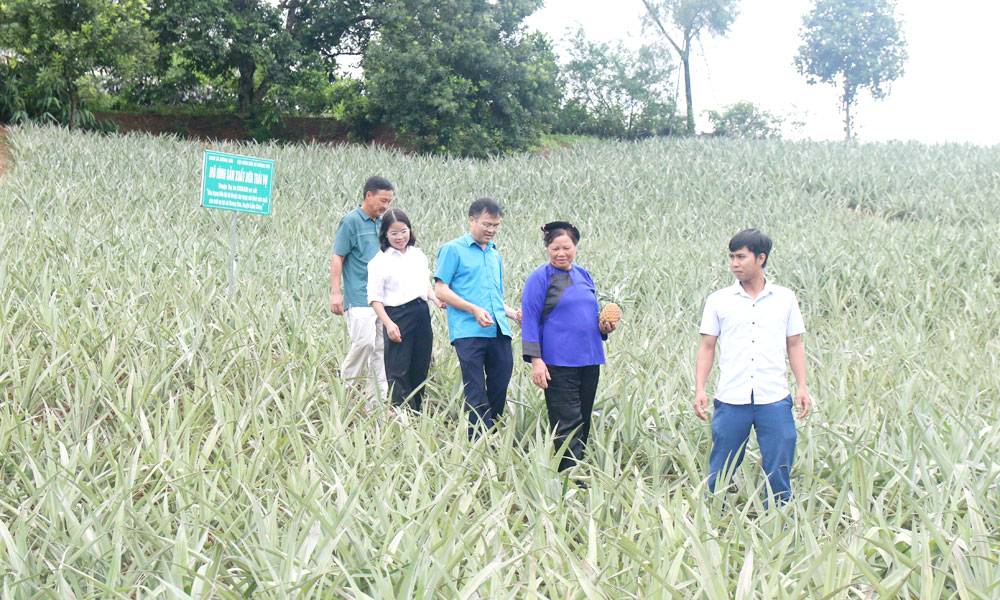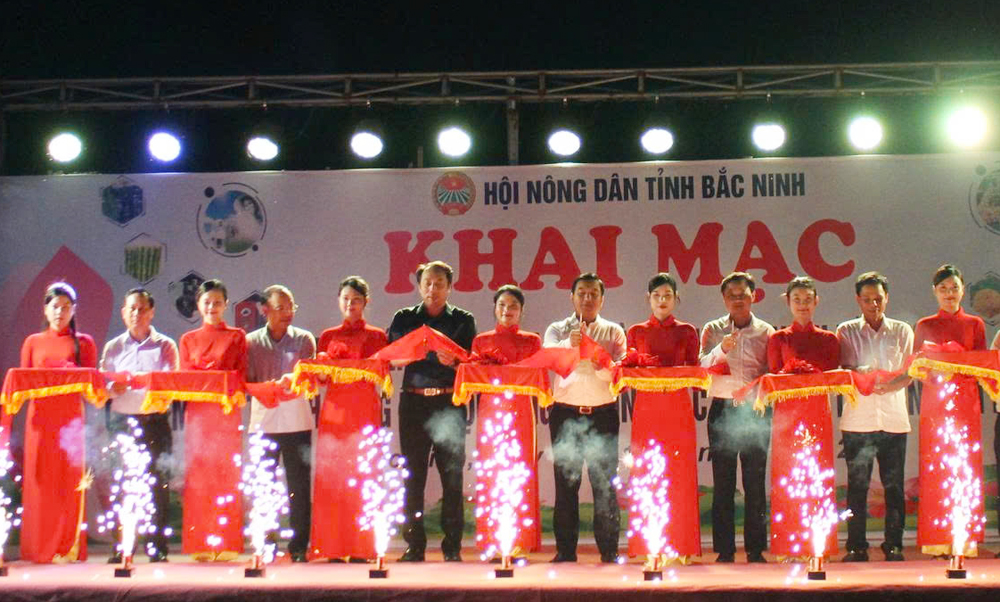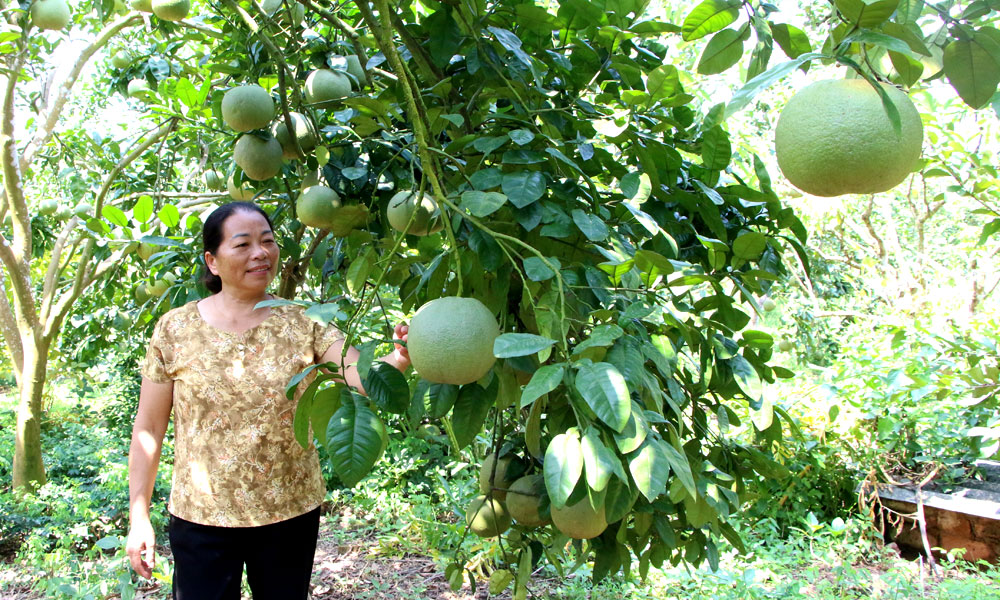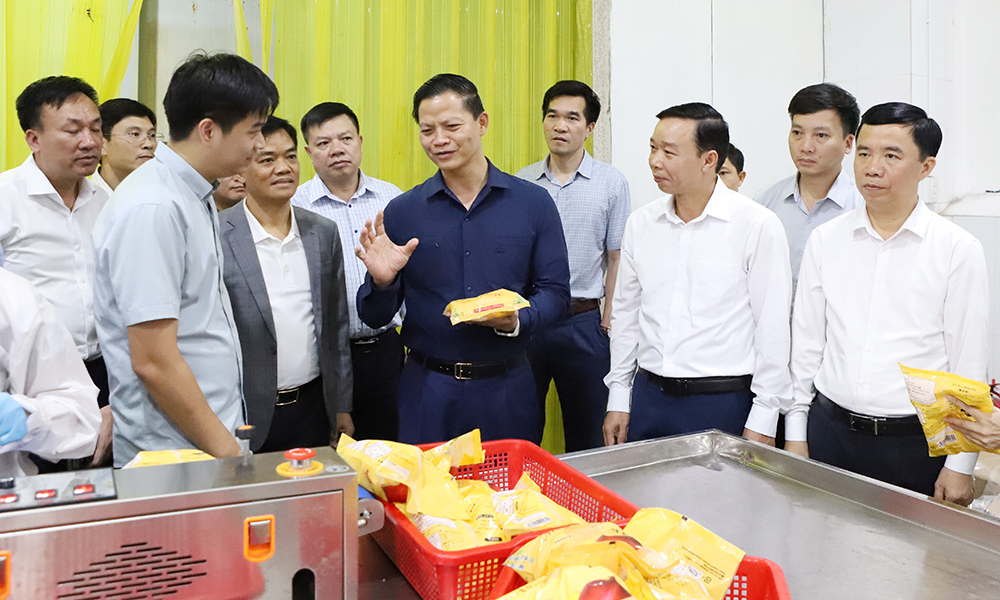Dai Son jujube promises sweet harvest season
BAC NINH - These days, in the jujube-growing areas across mountainous Dai Son commune, farmers are actively tending to the trees as they enter the fruit development phase. This is a crucial step for the jujube trees to absorb nutrients and achieve high yields. With their experience in production and the application of scientific and technical advancements, jujube growers in Dai Son are hopeful that 2025 will bring another sweet harvest.
Although it’s the same Taiwanese jujube variety, the Xuan jujube, when grown in Dai Son soil, boasts larger fruits and a unique sweetness that is hard to find elsewhere.
 |
|
The jujube orchard is entering the fruit development stage. |
According to local residents, amidst the vast forests and cool climate of the communes in the old Son Dong district, Dai Son stands out due to its distinctive weather.
The area has very low rainfall, combined with special soil conditions, which create the "perfect timing and favourable location" that contribute to the unique value of the jujubes grown here.
With outstanding yield and quality, this jujube has built a strong brand in the market, helping farmers increase their income.
As a result, the area planted with jujube has expanded from just a few hectares to over 190 hectares, with an average yield of nearly 40 tonnes per hectare, totaling about 7,600 tonnes per year.
The jujubes are sold for around 30,000 VND (1.14 USD) per kilogramme, generating hundreds of billions of VND in annual revenue. Many households now have an income ranging from 150 to 300 million VND per year. The 2025 revenue is expected to reach more than 200 billion VND (7,600 USD).
The commune has successfully established a concentrated jujube production area, and Dai Son jujube has been certified as a 3-star OCOP product. Most of the jujubes are purchased by traders, convenience stores, and supermarkets within and outside the province.
Beyond traditional farming, the jujube growers in Dai Son are daring to implement clean farming models, producing according to VietGAP standards, and linking product consumption.
As a result, the quality and commercial value of the jujubes have been continually improved, and the market for them has expanded.
In Tan Hiep village, a cooperative specialising in the purchase and sale of clean agricultural products has been established, with 14 member households.
The cooperative has been certified by VINACAB (Hanoi) for producing jujubes under VietGAP standards, with an area of over 21 hectares and an expected output of 635 tonnes per year.
Hoang Van Phuong, Chairman of the Dai Son People's Committee, shared: “To achieve the goal of raising the economic value per hectare of agricultural land to 125 million VND per year, Dai Son commune will continue to promote the application of science and technology in organic farming, VietGAP, and GlobalGAP standards.
 |
|
The late-blooming Xuan jujube is in the flowering phase. |
“We will focus on restructuring crops appropriately, encouraging local people to expand jujube cultivation, develop high-quality jujube production areas, and strengthen production links to create competitive products in the market. At the same time, we will implement solutions to build and promote the clean Dai Son jujube brand to improve economic efficiency, turning this agricultural product into a key product of the commune, linked to the One Commune, One Product (OCOP) programme,” he said.
Although jujube is a new crop in Dai Son, its high yield, excellent quality, and good price have delivered outstanding economic benefits compared to other crops in this mountainous region.
It has become a highlight in the restructuring of crops that are well-suited to the soil conditions, helping the locality fulfill the National Target Programme for socio-economic development in ethnic minority and mountainous areas.
 Bắc Ninh
Bắc Ninh













Reader's comments (0)